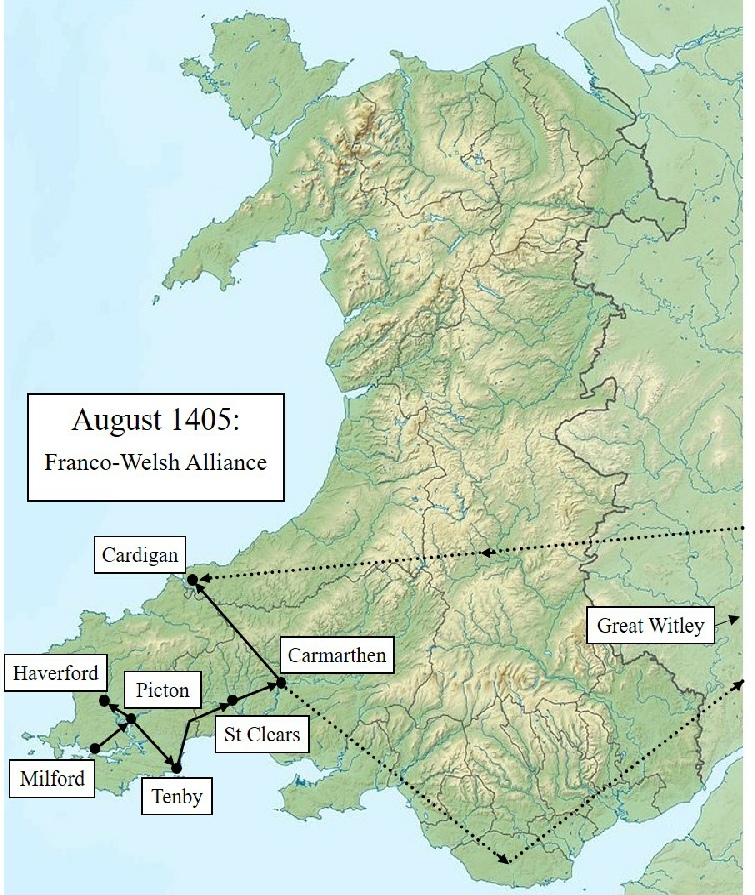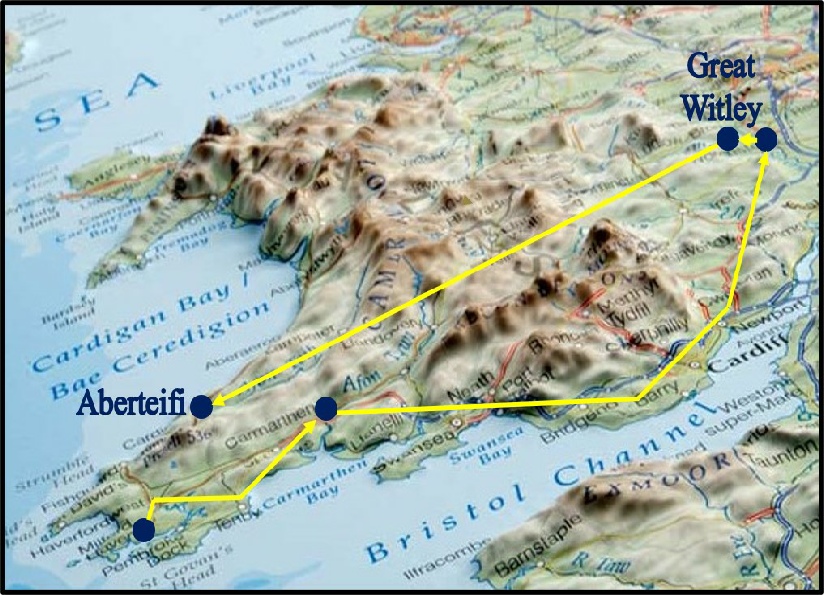The support of the French king, Charles VI, and his younger brother Louis, Duke of Orleans, played an importa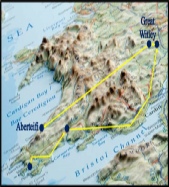 nt part in Glyndŵr’s campaign. After the French had agreed a treaty in July 1404, a force of over 10,000 men was mustered to set sail for Wales. This endeavour came to nothing, however, mainly due to the poor leadership of James II, Count of March.
nt part in Glyndŵr’s campaign. After the French had agreed a treaty in July 1404, a force of over 10,000 men was mustered to set sail for Wales. This endeavour came to nothing, however, mainly due to the poor leadership of James II, Count of March.
Glyndŵr ratified this treaty with the French in January 1405 and another large French force was assembled to set sail at the end of July. The impressive fleet, led by Jean de Hangest, Jean de Rieux and Renaud de Trie, landed at Milford in West Wales in early August.
They were soon joined by a large force of Glyndŵr’s men and, according to the chronicler Michel Pintoin, the Franco-Welsh force then attacked: Haverford, Picton, Tenby, St Clears, Carmarthen and Cardigan in quick succession. By the beginning of November, he wrote that the French had begun to return home, with the whole force having left by Lent in 1406.
An account written by Enguerrand de Monstrelet differs from this. He suggested that after Carmarthen had been taken the combined force marched through South Wales as far as the suburbs of Worcester. This version appears to be corroborated by Pintoin, however, who mentioned that the force had travelled a distance of 60 leagues from Carmarthen to Cardigan - when the actual distance between the two is only about 71/2 leagues.
Monstr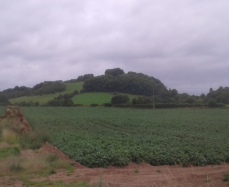 elet goes on to describe a stand-off between Glyndŵr’s army and Henry IV at Great Witley, near Worcester. For 8 days, Glyndŵr and the French camped at Woodbury Hill, and Henry and his army camped at Abberley Hill on the opposite side of the Teme valley. Both sides drew up to face each other for battle each day but, apart from skirmishes, this failed to materialise.
elet goes on to describe a stand-off between Glyndŵr’s army and Henry IV at Great Witley, near Worcester. For 8 days, Glyndŵr and the French camped at Woodbury Hill, and Henry and his army camped at Abberley Hill on the opposite side of the Teme valley. Both sides drew up to face each other for battle each day but, apart from skirmishes, this failed to materialise.
At the end of the stand-off, it appears that both sides retreated - this was probably due to a lack of suitable supply lines, or possibly an agreement was reached between Owain and Henry IV. Whatever transpired, the French had returned home by the following Easter.
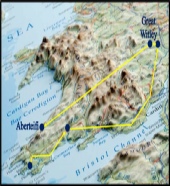
Franco-Wales Alliance
1405 Campaign

